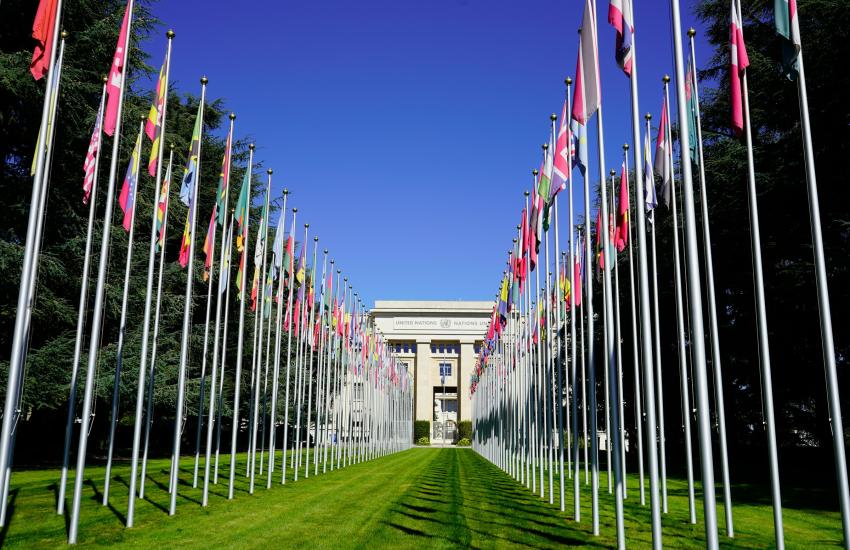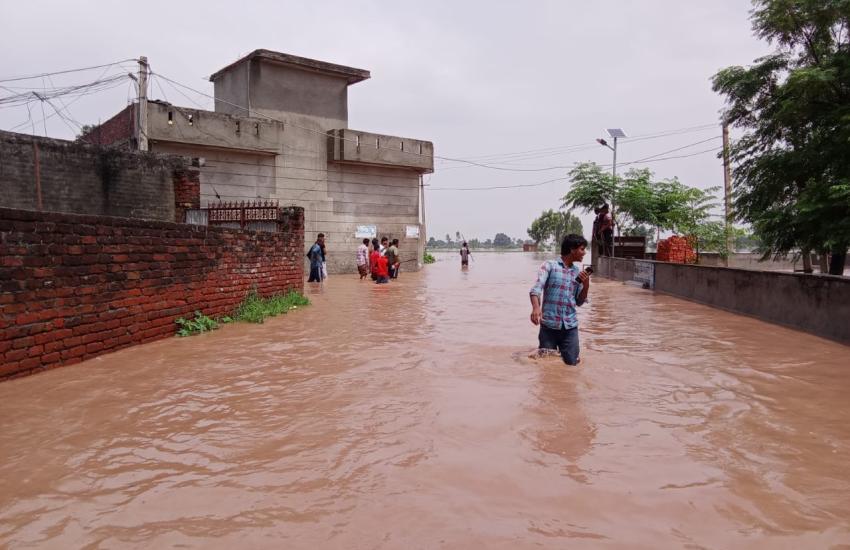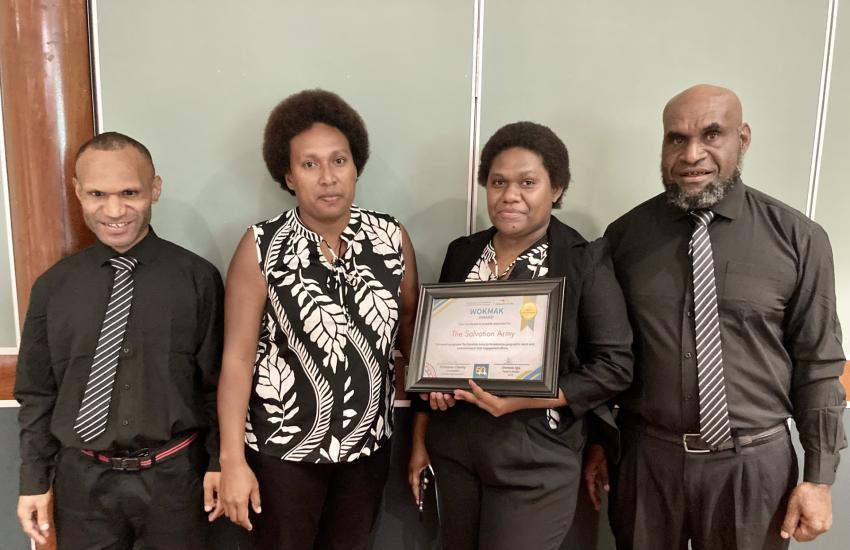SALVATION Army relief team members in Pakistan continue to provide vital aid to victims of the earthquake that hit the Baluchistan region in late October. At least 250 people lost their lives in the disaster and 20,000 people were displaced from their destroyed or damaged homes. As a first phase in the combined relief effort, The Salvation Army agreed to supply winterised tents, cooking and eating utensils and cylinder gas cookers for 500 families. Cylinder cookers were chosen because natural gas is freely available in Baluchistan.
At territorial headquarters in Lahore, Salvation Army personnel obtained quotes and firm delivery dates from various suppliers. Specifications for the winterised tents were developed and presented to local tent-makers. Canvas bags were ordered that would hold a cooker and utensils for ease of distribution. Because the tents were a work in progress, it was agreed that they would be shipped out in four phases as they were made, accompanied by the canvas bag kits.
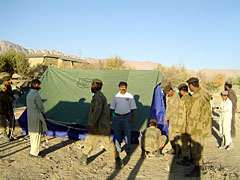 Members of the military help put up a Salvation Army tent |
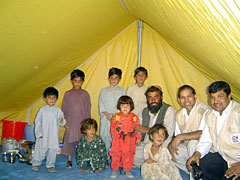 Salvation Army team members with a family in its new, warm tent |
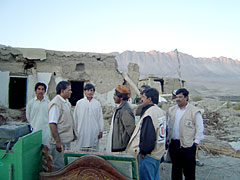 Captain MacDonald Chandi speaks to an earthquake victim near his destroyed home. The captain is telling the man that tomorrow his family will have a warm tent to sleep in. |
An assembly line was then organised to fill the canvas bags with the cooker and utensils. Over the next five days, three separate sessions took place before all the bags were complete. Staff from headquarters, senior girls from the Salvation Army boarding hostel, young people from the corps (church), cadets from the officer training college and some employees from a local branch of the Royal Bank of Scotland gave their time and energy to complete the task.
Meanwhile, at the earthquake site, a three-person team was assessing the situation and coordinating a distribution plan for when the various shipments arrived. Captain MacDonald Chandi, Major Khuram Shahzada and Captain Michael Paul have been working closely with a Pakistan military major who was given the responsibility of coordinating the relief efforts. He set up some meetings with his General and informed him of The Salvation Army's efforts. Appreciation was expressed, particularly for the tents which were much more suited for the current climate than others they had received.
The first distribution took place in the far-flung village of Warchoon, where 100 families received tents and supplies. Twenty military soldiers were assigned to the team in order to erect the tents quickly and efficiently. The families were grateful for the warm tents and the cooking and eating utensils. An additional 120 tents and cooking kits were distributed later that week.
A second batch of 500 winterised tents and kits has now been requested by the local military coordinators and the Salvation Army team has quickly made these available. There is still a shortage of winterised tents and temperatures at night are now as low as minus 13 degrees Celsius. With further strong aftershocks still being experienced, meaning that people are scared to return to their partially damaged homes, the provision of appropriate shelter is the greatest priority.
